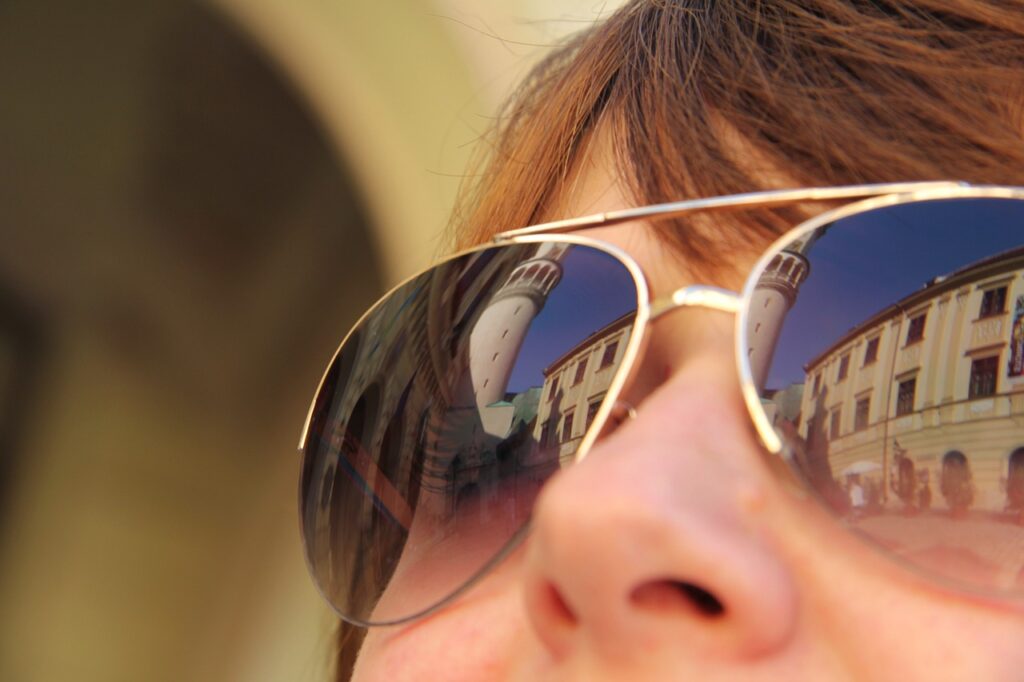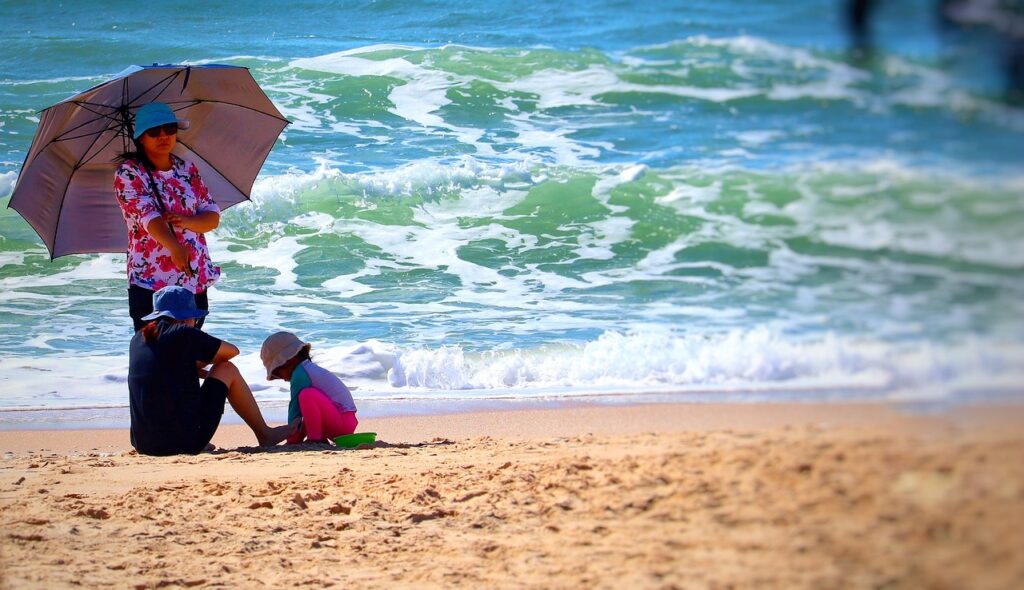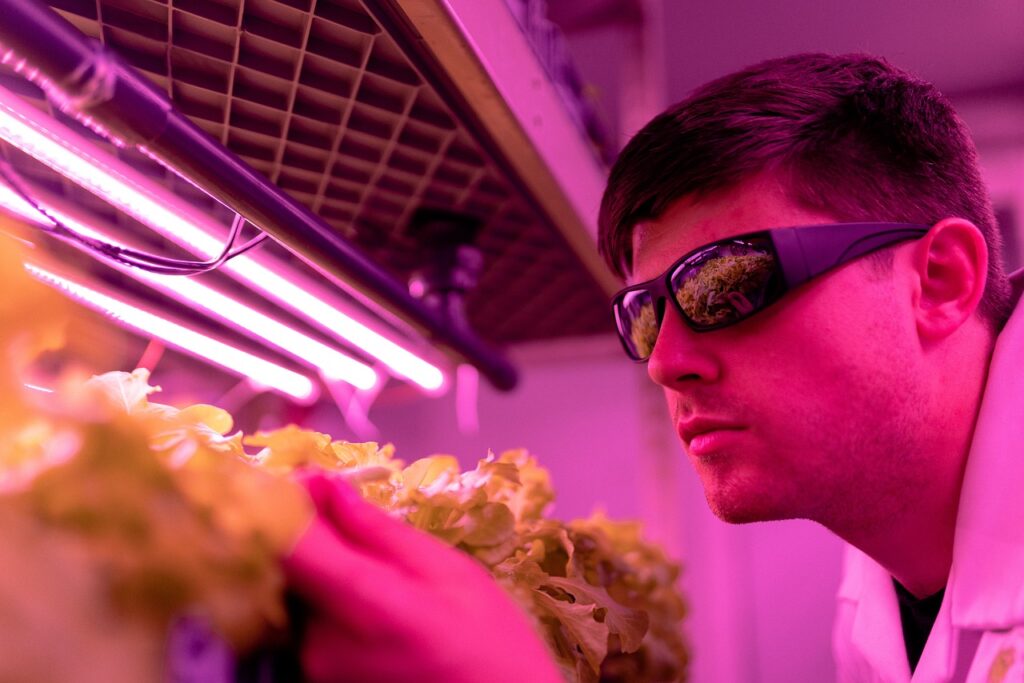Our eyes are one of the most vital parts of our body. We rely on them every day for nearly everything we do driving, reading, working, and even just enjoying the outdoors. However, the dangers lurking in the form of UV (ultraviolet) light are often underestimated. Prolonged exposure to UV light can damage your eyes, leading to various eye conditions like cataracts, macular degeneration, and even skin cancer around the eyes. But don’t worry, there are simple ways to protect eyes from UV light like sunglasses and ensure that your eyes stay healthy for years to come.
In this post, we’ll dive into why UV protection is crucial for eye health and give you practical tips on how to shield your eyes from harmful rays.
Why UV Light Is Dangerous for Your Eyes
UV light is a form of radiation that comes from the sun and artificial sources like tanning beds. The two main types of UV rays that can harm your eyes are UVA and UVB. While we’re all aware of the dangers of sunburn on our skin, many don’t realize that UV light can penetrate the eye’s surface and cause long-term damage.
Over time, exposure to UV light can increase your risk of developing conditions such as cataracts, which cloud the eye’s lens, or macular degeneration, which affects the part of the retina responsible for sharp vision. UV rays can also lead to photokeratitis, a painful condition known as “sunburn of the eye” or snow blindness. It’s like getting a sunburn, but instead of your skin, it’s your cornea that’s affected.
Therefore, it’s vital to take steps to protect eyes from UV light, not just in the summer but throughout the year, since UV rays can penetrate clouds and even be reflected off surfaces like water and snow.

Wear Sunglasses with UV Protection
One of the most effective ways to protect eyes from UV light is by wearing sunglasses. But not just any pair of sunglasses, look for ones that offer 100% UV protection. Many sunglasses may look cool, but without the proper UV protection, they do little to shield your eyes.
When shopping for sunglasses, always check the label or product details to ensure that the lenses block 100% of both UVA and UVB rays. Polarized sunglasses can also help reduce glare, which is particularly useful when you’re outdoors in bright sunlight, but keep in mind that they don’t necessarily provide UV protection unless specifically labeled as such. The frame of the sunglasses is also important; choose ones with larger frames that cover your eyes from various angles to minimize UV exposure.
Even if it’s not a sunny day, remember that UV light can still affect your eyes on cloudy or overcast days. UV rays can pass through clouds, so protecting your eyes is crucial no matter the weather. “Sunglasses should be a part of your daily routine and fashion style, whether you’re taking a walk, enjoying a day at the beach, or driving.”
Don’t Forget About Your Hat
If you want to double down on protecting your eyes from UV light, pair your sunglasses with a wide-brimmed hat. A hat provides additional protection by blocking sunlight from hitting your face and eyes directly. This is especially useful when you’re outdoors for an extended period, as it helps to keep your face shaded while adding an extra layer of UV defense.
Look for hats with brims that extend at least 3 inches all around, ensuring full coverage. This way, you get an added defense against UV rays coming from different angles. It’s also a stylish way to protect yourself while enjoying the sun, so why not combine function and fashion?
Stay in the Shade
While sunglasses and hats can provide solid protection, one of the best ways to protect eyes from UV light is simply to stay in the shade when possible, especially during peak sunlight hours. The sun’s rays are strongest between 10 a.m. and 4 p.m., so if you’re planning to be outside, it’s best to avoid prolonged sun exposure during these hours. If you’re spending time outdoors, seek shade under trees, umbrellas, or other structures to limit direct exposure.
Additionally, if you’re going to be around reflective surfaces like water, snow, or sand, make sure to protect your eyes, as these surfaces can reflect UV rays and increase the exposure to your eyes. These topics are part of the medical considerations that should be taken into account when using sunglasses. Even if you’re wearing sunglasses, the reflected rays can still be harmful, so staying in the shade will help reduce your risk.

Diet and Eye Health
You may not think of nutrition as a way to protect your eyes from UV light, but your diet can play a significant role in maintaining overall eye health. Foods rich in antioxidants, such as leafy greens, carrots, and citrus fruits, can help protect your eyes from damage caused by UV rays.
In particular, foods high in vitamin C and E can help prevent cataracts and macular degeneration, which are both linked to UV exposure. Even by wearing sunglasses, we can reduce the risk of developing cataracts in the eyes. Omega-3 fatty acids, found in fish like salmon, can also support healthy vision by reducing inflammation and protecting the retina from damage.
While nutrition alone won’t be enough to protect eyes from UV light, it’s a great complement to other protective measures. A healthy diet can boost your eye’s natural defense system, making them more resilient against environmental stressors like UV light.
Protecting Your Eyes in Different Environments
It’s not just the great outdoors that can expose your eyes to harmful UV light—artificial sources like fluorescent lighting, and even the light emitted from digital screens, can contribute to eye strain. While digital screens don’t emit UV rays, extended exposure to blue light (a form of high-energy visible light) from these devices can contribute to eye fatigue and discomfort.
To protect eyes from UV light indoors, you can also consider wearing glasses with a blue light glasses or lenses that block UV rays. These glasses are designed to reduce the strain caused by prolonged screen time, making them an excellent option for anyone working from home or spending hours on their devices.

Conclusion
Protecting your eyes from UV light is essential for maintaining long-term eye health and preventing vision problems in the future. By wearing sunglasses with proper UV protection, adding a hat to your outdoor gear, staying in the shade during peak sunlight hours, and supporting eye health through a nutritious diet, you can minimize your risk of UV damage. Additionally, consider protecting your eyes indoors by using blue light-blocking glasses for screen time.
Take action now to protect your eyes from harmful UV rays, and remember that every step counts when it comes to preserving your vision.
Have you ever experienced any eye discomfort from UV exposure? Share your thoughts in the comments below!
For more information and to find high-quality eyewear, check out Optics4Less—your go-to place for all things eyewear!

